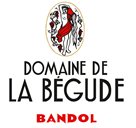Domaine de la Bégude, Cadet de la Bégude Rosé IGP


Vintage: 2024
| Vintage | Product Code | Format | Closure | Availability |
|---|---|---|---|---|
| 2024 | DB402B24 | 6 x 75 | Natural Cork | Available |
Producer
Domaine de la Bégude is one of Bandol’s oldest and most emblematic domaines. Originally a medieval stopover for pilgrims (‘beguda’ meaning ‘place to drink’ in Provençal), it was abandoned until Guillaume Tari of Château Giscours purchased and restored it in 1996. Guillaume replanted 45 hectares of steep terraced vineyard predominantly with Mourvèdre, creating the world’s largest clonal collection of this variety that forms the backbone of all Bandol, now totalling over 150 clones. He also oversaw the conversion to sustainable viticulture, with Domaine de la Bégude becoming organic certified in 2008 and biodynamic certified from 2023. The domaine was recently sold to the Roulleau family, owners of Château Dauzac in Margaux, who share Guillaume’s vision for its future.
A combination of clay-limestone soils, high elevation (at 410 metres above sea level, Domaine de la Bégude is the highest estate in Bandol), and sea breezes moderate the intense Provençal sunshine and bring freshness to these wines. The grapes are all harvested manually, sorted twice, destemmed and fermented with indigenous yeasts. The Bandol appellation requires red wines to be sourced from vines with a minimum of eight years of age, contain at least 50% Mourvèdre and undergo 18 months of oak ageing. The ‘Cadet’ rouge and rosé are an equal blend of Mourvèdre, Grenache and Cinsault sourced from the youngest vines at the estate, with an average age of 10 years. As a result, these wines are classified as ‘IGP Méditerranée’ but still express a distinctive sense of place.
The Bandol rosé is aged for a period on fine lees to add further complexity and freshness, which balances the higher percentage of Mourvèdre in the blend. The Bandol ‘Thyrsus’ is a 100% Mourvèdre, fermented and aged for six months in amphorae and bottled without sulphur. The resulting wine displays layers of pure black fruit punctuated by notes of thyme and cinnamon and supported by firm tannins.
The Bandol Rouge is a blend of 90% Mourvèdre and 10% Grenache, aged for 20 months in a combination of 600-litre demi-muids and 300 and 400-litre used oak foudres. Its structured palate is balanced by concentrated red and black fruit with lifted notes of violet and garrigue and a persistent finish – this is Bandol at its best!
Vineyards
Certified organic since 2006, the vineyards are located at 400m altitude above sea level at the highest point in the Bandol. Split into eighty different parcels, the diverse clay and limestone soils provide good water retention and ideal conditions for the Mourvedre grape to flourish. Guillaume employs manual grafting to improve the vines' drought resistance as well as the use of cover crops, shallow tillage and biodynamic treatments to maintain a healthy soil environment.
Vintage
The 2024 vintage in Provence faced exceptional challenges including more rainfall than 2023, early-season frost and high mildew pressure. Careful vineyard management was used to mitigate these threats. Extreme summer heat with temperatures consistently above 35°C from mid-July to mid-August required early harvest timing to preserve the fresh characteristics essential for quality Provence rosé production.
Vinification
The grapes were harvested by hand, double sorted and fully destemmed before gentle crushing took place. The berries were then slowly and gently pressed at low pressure to maintain the freshness and delicate red fruit character before undergoing cold-settling. Cold settling occurred, followed by alcoholic fermentation occurred in stainless steel vats with indigenous yeast. The wine was naturally decanted by gravity before bottling.
Tasting Notes & Technical Details
Delicate in colour, the Cadet Rosé has a bright character of fresh stone fruit and crunchy red berry flavours balanced by refreshing acidity. The finish is long and expressive with pink grapefruit notes.
Alcohol (ABV)
12.5%
Other wines from this producer
Producer | Wine | Product Code | Features | Style | |
|---|---|---|---|---|---|
| Domaine de la Bégude | Cadet de la Bégude Rouge IGP | DB401 | R | ||
| Bandol Rosé | DB403 | Ro | |||
| Bandol Rouge | DB404 | R | |||
| Thyrsus IGP | DB405 | R | Factsheet |